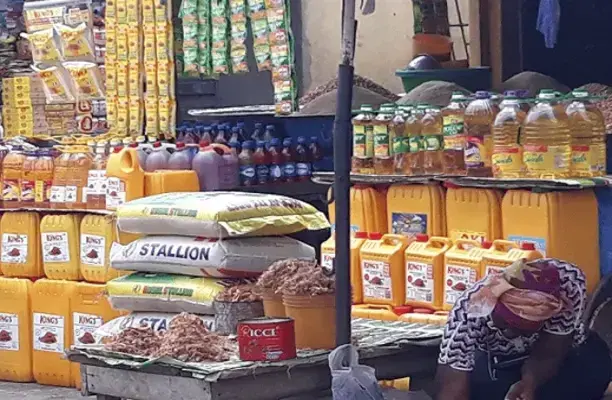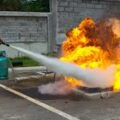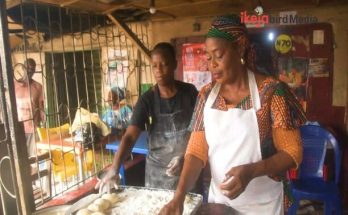By Ejiofor Toochi
Edited By Sunkanmi Adewunmi
A NAFDAC enforcement operation at the Lagos International Trade Fair Complex turned chaotic when armed hoodlums stormed in, locked the gates, and attacked with stones, forcing operatives to flee.
By the time calm returned, several enforcement officers were injured and agency vehicles worth 25 billion were vandalised. Yet, despite the violence, NAFDAC maintained that the operation was successful as they confiscated four trucks of fake and unwholesome products worth N500 million.
This is not the first time enforcement operations have turned violent. In 2022, one of NAFDAC’s officers narrowly escaped death during a similar raid in the same market. Likewise, in 2019, operatives were attacked at the Head Bridge Market in Onitsha while evacuating fake drugs, pelted with stones and bottles.
These raids are part of NAFDAC’s fight against counterfeit, substandard, and falsified products — a trade that continues to endanger lives and undermine Nigeria’s economy. The agency estimates that fake and substandard products, ranging from pharmaceuticals to cosmetics and consumables, cost the nation billions of naira annually.
Nigeria remains one of the largest markets for counterfeit goods in the developing world, with about 13 to 15 percent of drugs in circulation reportedly fake. Beyond the economic damage, these products pose grave public health risks, leading to poisoning, failed treatments, and preventable deaths. According to the World Health Organization (WHO), roughly 100,000 people across Africa die every year due to the use of falsified or substandard medicines.
To combat this growing menace, NAFDAC has introduced several measures over the years. One of its notable initiatives is the Mobile Authentication Service (MAS), introduced in 2010, which empowers consumers to verify the authenticity of medicines at the point of purchase using scratch codes and SMS verification.
Beyond technology, NAFDAC regularly conducts market raids and surveillance operations nationwide to identify and seize counterfeit goods. These enforcement exercises often target major markets, warehouses, and distribution centers, where substandard and falsified products are sold.
They also invest in public awareness campaigns and collaborate with global and local organizations, including the World Health Organization (WHO) and the Nigeria Customs Service, to enhance border surveillance and intelligence sharing.
For NAFDAC, the recent violence only reinforces the need for persistence. The agency has vowed not to be intimidated by attacks. Its Director-General, Prof. Mojisola Adeyeye, reaffirmed this commitment, saying, “NAFDAC remains fully alive to its responsibility of safeguarding the health of Nigerians. This incident will only strengthen our resolve to do more.”
Despite these efforts, the fight against counterfeit products, it seems, is far from over, with countless fake and substandard goods still flooding shelves across the country.
READ ALSO: The Rise of Counterfeit Products in Nigerian Markets | IkejaBird Investigative Series








